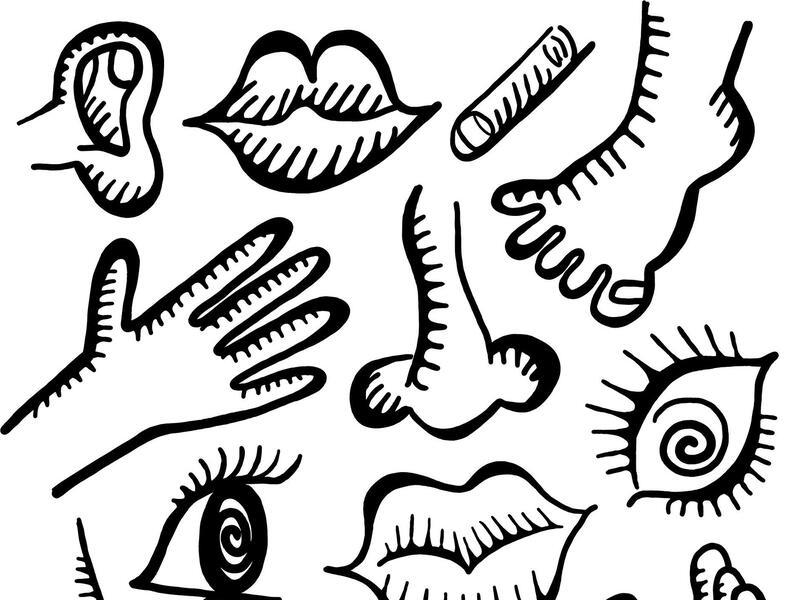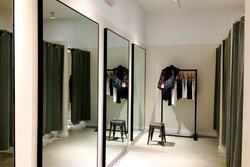Social Media “Influencers”: Start Influencing Girls to Love Ourselves
Do you remember the first time you saw a “life hack” on social media that showed you a fun new way to change your appearance? I do.
It was a video on Instagram of a woman using a comb to diffuse her stretch marks. I didn’t even know what stretch marks were, or where they came from. All I knew was that, after watching the video, I did not want them on my body. I was at most fourteen.
There are a lot of different “life hacks” I’ve seen on Instagram that are supposed to help you fix different physical “imperfections.” I learned that you can contour your lips to make them look plumper, and make a face mask with different household items to tighten up your skin and get rid of any sagginess. These life hacks also became a common topic between my friends and me. We talked about which ones worked, and which ones left us disappointed. But I never really thought about why influencers made these tutorials. To me, it was the same as someone who made a funny video or a "reaction video" on YouTube. It was a category, and I didn’t see anything wrong with it.
A few years later, in eleventh grade, I started watching The Good Place. Naturally, after falling in love with the show, I followed the whole cast on Instagram. Suddenly, my feed was populated by Jameela Jamil who plays Tahani on the show. And I noticed a stark difference between her posts and the posts I was used to. For years I was used to seeing women who painted an image of themselves on social media, carefully crafting a feed that made their lifestyle seem effortless and easy. But Jameela was different. She spoke out about her struggle with body dysmorphia. She made videos of herself playing with her arm fat. She posted pictures of herself eating burgers, and not in a cute way. She stepped out of line. She was relatable, and she made me feel normal for not being perfect. I suddenly felt like I didn’t have to strive for anything; the way I was was good enough.
Jameela Jamil’s main focus on her platform for a long time was attacking industries that profit off of women’s insecurities, like “weight loss tea.” According to companies like Fit Tea, if you drink their product, you will lose weight and have a flat stomach. I was genuinely shocked when I learned it was all a lie; as VICE and other publications have uncovered, these teas are basically just laxatives and are in no way healthy. I was annoyed that I didn’t see earlier how manipulative the ads were. If you see a picture of a size zero model looking happy and healthy holding weight loss tea, of course you will want to buy the product.
I spent the next hour unfollowing all the Kardashians, who are sponsors of the tea, and any Instagram account that made me rethink the way I looked. I followed a ton of feminist and body positive accounts, and the effect was almost immediate. I didn’t focus on my body as much, and I started focusing on things that I was passionate about. I also stopped judging other women while simultaneously comparing myself to them. This pressure to look a certain way, and wear certain clothes, and be a certain weight, had lifted.
The toxic type of messaging that popularizes “life hack” videos is persistent in our society, and it comes from a few places. Life hack Instagram accounts, celebrities, a brand advertising their product, and YouTube channels are just some examples. It's possible that some of the individuals who post these videos don’t profit off of them, or even realize they are reinforcing the idea that a woman's body should look a certain way. However, there are corporations and celebrities who know how easy it is to profit off of someone’s insecurities, and they take advantage of that opportunity.
Girls today are given an image of what an ideal body should look like, and their introduction into womanhood and knowing their bodies is through the lens of fixing it and believing they are imperfect. Undoing that first impression is incredibly difficult, and some women never get there. We spend time, money, and energy trying to fit an ideal image of femininity and beauty that is enforced in all areas of our lives, without being able to challenge that the entire concept might just be BS, and, in addition, that there are parts of ourselves other than our bodies that make us beautiful and worthy.
This line of thinking, at least for me, also affected my relationships with other women. I often compared myself to my peers, and even my friends. I became judgmental. I would find the worst in other people, whether it be their bodies, or even their intelligence, and I would use that to feel better about myself.
Especially in high school, we get stuck in this vicious cycle of one-upping one another and judging one another, instead of lifting each other up. At a certain point, it’s almost second nature, and you don’t even realize you’re doing it. After many back and forth email exchanges with one of my social media role models, Victoria Garrick, I was able to bring her in to speak at my school. She gave a presentation on mental health and body image as a woman and as a college athlete. My peers and I listened, captivated by her honesty. Afterwards, I got messages of thanks from multiple students and teachers. I was proud of myself for seeing a problem in my school that I wanted to fix, and doing something about it. I got to see the results of my efforts, right in front of my eyes. Victoria’s presentation had a beautiful effect on the girls in my school. I felt a sense of camaraderie, rather than judgement following her visit. Listening to another woman be open and honest about her struggles made us all feel connected.
I now have a number of social media role models who show off their stretch marks and chub, and who don’t pretend they are perfect. They thank their bodies for all that they do, and they talk about the methods they use to cope with insecurity. I am constantly inspired by women like Jameela Jamil and Victoria Garrick who talk about what it’s like to be a woman and embrace your body.
Influential people who do not use their voices responsibly are at the root of toxic social media. Apps like Instagram become this echo chamber of hacks, tricks, and women trying to fit the mold of ideal femininity forced upon them, posting pictures for validation of their efforts. But I choose to listen to and amplify voices of honesty and positivity, and surround myself with women who inspire me. I often think about how my relationship with myself would look if I'd never seen those “life hack” videos, and if my introduction into womanhood had been with the message, “you are beautiful the way you are” and not, “you can be beautiful using these simple steps.”
The other day, I was looking in the mirror before a shower. I noticed a new stretch mark. If I had seen that stretch mark a few years ago, I would have grabbed a comb and started scraping. But to my surprise, I wasn’t bothered; I was happy. It felt like embracing the mark allowed me to join this legion of powerful women who could give a crap about other people’s opinions of them.
It only took a few strong women breaking the cycle of toxic social media to start changing the way I viewed my body. This is what feminism is to me: the work to break cycles, and to help one another step outside of the cloud of what we have been taught is normal, and into the clear where we can see ourselves and one another as beautiful, powerful, and deserving of love.
This piece was written as part of JWA’s Rising Voices Fellowship.







What a beautifully written article, so honest and SO important!! Thank you Neima! :)
Thank you so much!